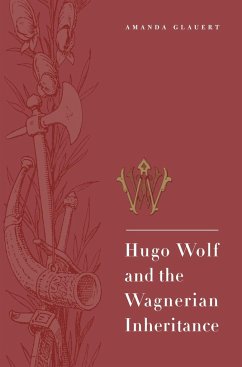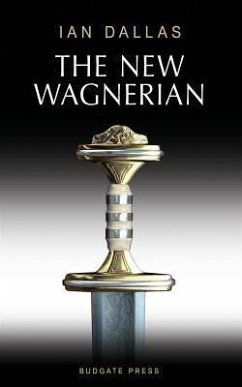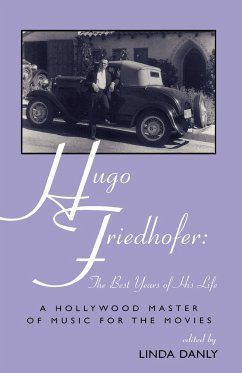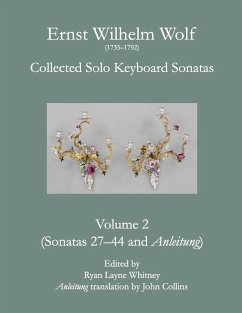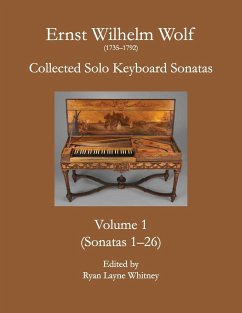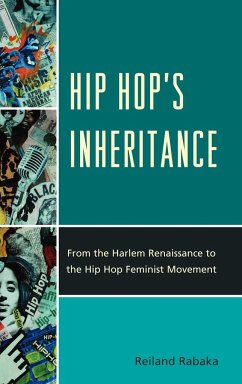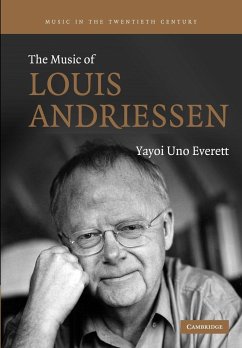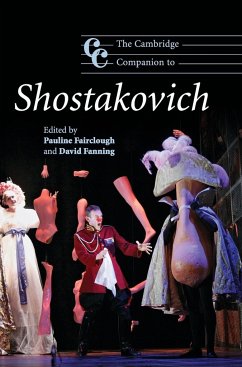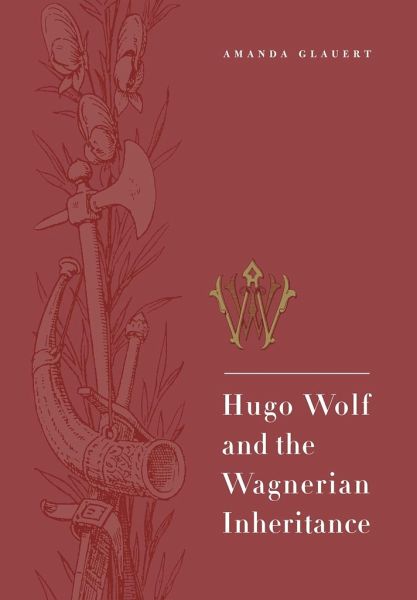
Hugo Wolf and the Wagnerian Inheritance

PAYBACK Punkte
23 °P sammeln!
This book offers an in-depth study of the music of Hugo Wolf.Wolf has been regarded as a composer who followed the style and aesthetics of Wagnerian music drama without question, while writing in a genre often seen as less challenging than the symphony or opera. This book re-examines the evidence concerning Wolf's responses to Wagner and Wagnerism and suggests ways in which he voiced his criticism through song, and his one completed opera Der Corregidor. This opens up insights into the kind of impact Wagner had on those following in his wake, and into the complexity and subtlety of the late ni...
This book offers an in-depth study of the music of Hugo Wolf.
Wolf has been regarded as a composer who followed the style and aesthetics of Wagnerian music drama without question, while writing in a genre often seen as less challenging than the symphony or opera. This book re-examines the evidence concerning Wolf's responses to Wagner and Wagnerism and suggests ways in which he voiced his criticism through song, and his one completed opera Der Corregidor. This opens up insights into the kind of impact Wagner had on those following in his wake, and into the complexity and subtlety of the late nineteenth-century Lied. From this perspective, Wolf emerges as a persuasive and articulate figure of wide musical and artistic significance.
Review quote:
'- Glauert's illustrative and analytical detail is always subordinate to the energy and clarity of her argument. And that argument itself is truly deductive: it leaps out from an honest, keen-eared study of Wolf's music, rather than imposing a wilful agenda on it.' Hilary Finch, BBC Music
Table of contents:
Acknowledgements; Introduction; 1. 'Music of the future'? The nature of the Wagnerian inheritance; 2. 'Wagner of the Lied'? Wolf as critic of Wagner and Wagnerism; 3. Small things can also enchant us - Wolf's challenge to nineteenth-century views of song; 4. 'Poetry the man, music the woman'? Wolf's reworking in his Mörike songs of Wagner's aesthetics of words and music; 5. The integrity of musical language - questions of form and meaning in Wolf's Goethe songs; 6. The Wolfian perspective - comparisons with the songs of Strauss and Mahler; Notes; Bibliography; Index.
Wolf has been regarded as a composer who followed the style and aesthetics of Wagnerian music drama without question, while writing in a genre often seen as less challenging than the symphony or opera. This book re-examines the evidence concerning Wolf's responses to Wagner and Wagnerism and suggests ways in which he voiced his criticism through song, and his one completed opera Der Corregidor. This opens up insights into the kind of impact Wagner had on those following in his wake, and into the complexity and subtlety of the late nineteenth-century Lied. From this perspective, Wolf emerges as a persuasive and articulate figure of wide musical and artistic significance.
Review quote:
'- Glauert's illustrative and analytical detail is always subordinate to the energy and clarity of her argument. And that argument itself is truly deductive: it leaps out from an honest, keen-eared study of Wolf's music, rather than imposing a wilful agenda on it.' Hilary Finch, BBC Music
Table of contents:
Acknowledgements; Introduction; 1. 'Music of the future'? The nature of the Wagnerian inheritance; 2. 'Wagner of the Lied'? Wolf as critic of Wagner and Wagnerism; 3. Small things can also enchant us - Wolf's challenge to nineteenth-century views of song; 4. 'Poetry the man, music the woman'? Wolf's reworking in his Mörike songs of Wagner's aesthetics of words and music; 5. The integrity of musical language - questions of form and meaning in Wolf's Goethe songs; 6. The Wolfian perspective - comparisons with the songs of Strauss and Mahler; Notes; Bibliography; Index.





